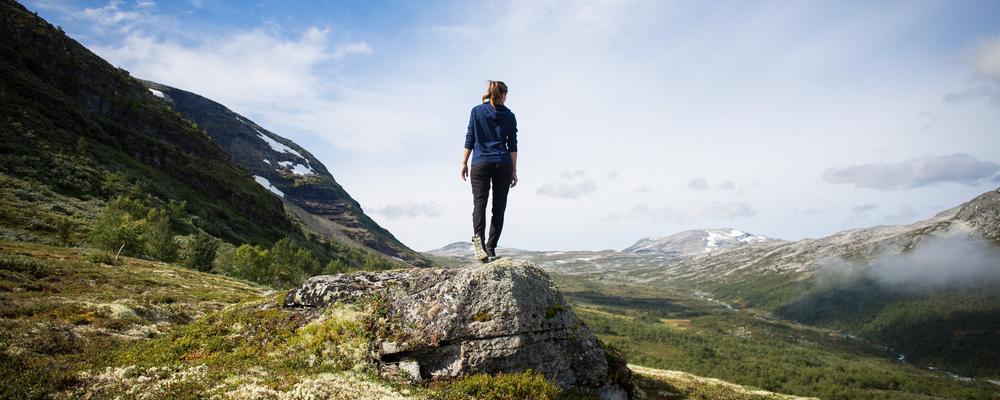Environmental interest has remained high and relatively stable in Sweden over recent decades, but during the pandemic there has been a clear break in the trend, with more people now reporting a greater interest in environmental issues. This is according to statistics from the SOM Institute at the University of Gothenburg, as presented in the latest Consumption Report.
John Magnus Roos, editor of the Consumption Report and a researcher at the Centre for Consumption Research, which is part of the School of Business, Economics and Law at the University of Gothenburg, finds the growing environmental interest surprising considering that the media have shifted away from the environment to focus instead on the pandemic and public health.
“What we can say is that our behaviour patterns have changed and we have reined in our consumption. Spending on transport, foreign holidays and clothing has plummeted and many people have begun to live differently. It may be that personal actions are now more closely aligned with an eco friendly lifestyle,” he says.
What we can say is that our behaviour patterns have changed and we have reined in our consumption.
The change was noted in the latest national SOM survey, a questionnaire that included the question “Generally speaking, how interested are you in environmental issues?”. The four-grade scale of responses ranged from “no interest at all” to “very interested”.
“This most recent questionnaire survey produced an average grade of 3.09, whereas it had previously remained steady at between 2.83 and 2.98. It may not look like much of a change, but because it is only a four-grade scale, this represents a significant and substantial difference,” explains John Magnus Roos.
At the same time, the consumption of outdoor, sports and nature products has climbed steeply during the pandemic, indicating that people are spending more time in the forest and countryside, which might also affect engagement with environmental issues, according to John Magnus Roos, who believes the growing environmental interest could have various consequences.
“It may, for example, be the case that companies and organisations will use this to strengthen their profile, and it may make life more difficult for companies that are associated with a negative environmental impact.”
It may, for example, be the case that companies and organisations will use this to strengthen their profile
Roos points out that a similar trend occurred during the global financial crisis of 2007–2008, when more people expressed a heightened interest in environmental issues. This then tailed off as the crisis abated and consumption began to take off again.
“We could see a similar trend this time around, but it might also indicate a lasting change,” says John Magnus.
Source: The national SOM surveys 2009–2019; the SOM survey on the coronavirus. The question posed in the questionnaire was “Generally speaking, how interested are you in environmental issues?”. Scale of 1–4. Response options: “not interested at all” (1), “not particularly interested” (2), “quite interested” (3), “very interested” (4). The number of respondents varies between 1,451 and 1,810 from year to year.
Contact:
John Magnus Roos
Researcher, Centre for Consumption Research at the School of Business, Economics and Law, University of Gothenburg. magnus.roos@cfk.gu.se Tel: +46 31-7721861
Agnes Faxén
Press Officer, Centre for Consumption Research at the School of Business, Economics and Law, University of Gothenburg. agnes.faxen@gri.gu.se Tel: +46 76-618 20 08
